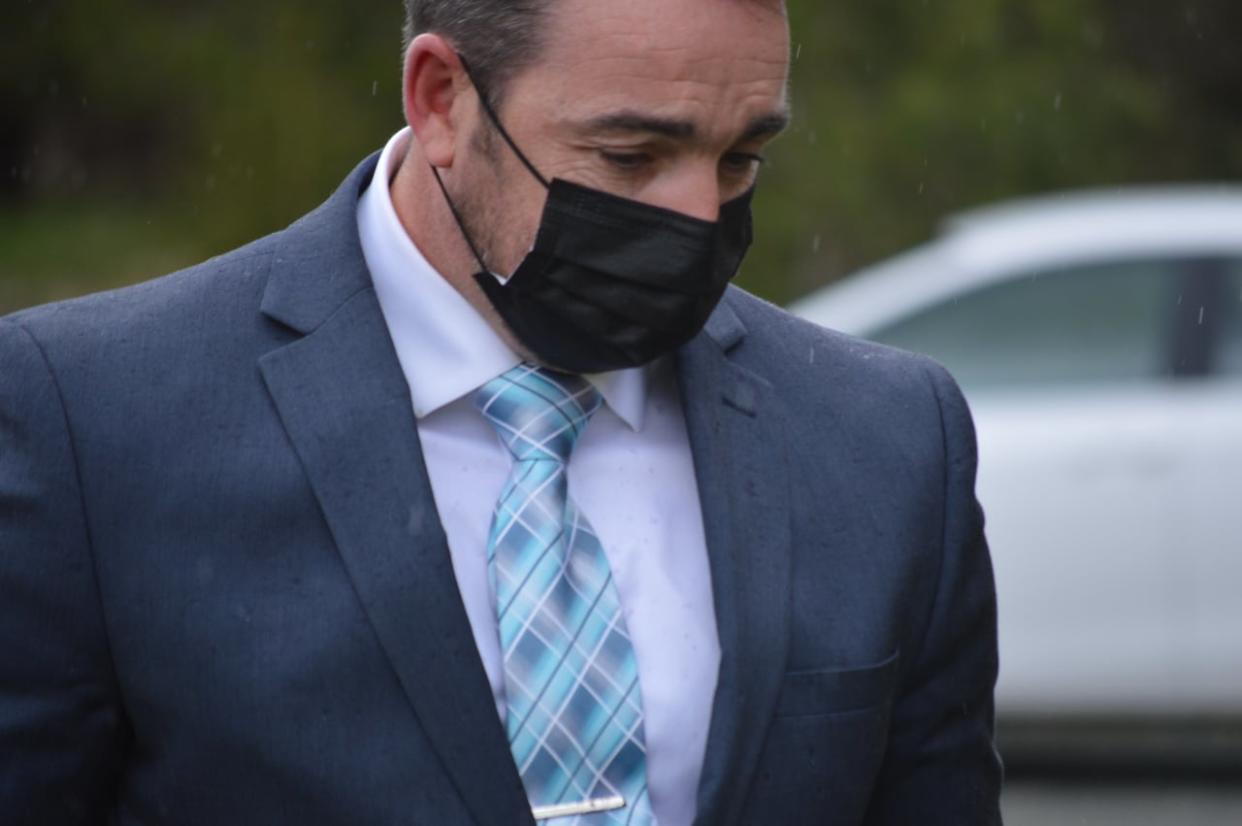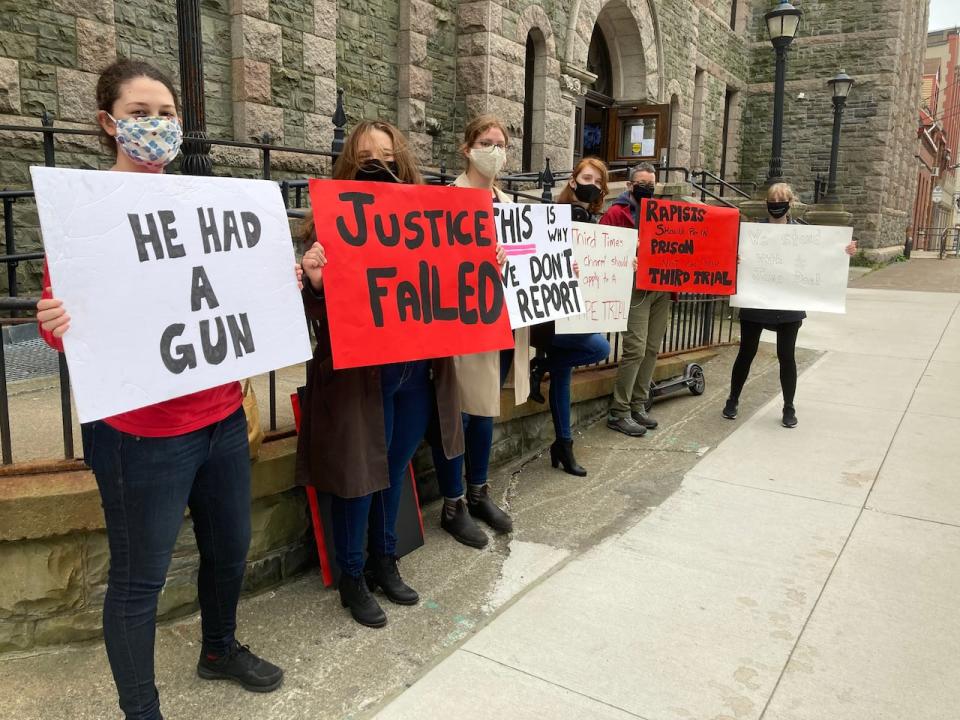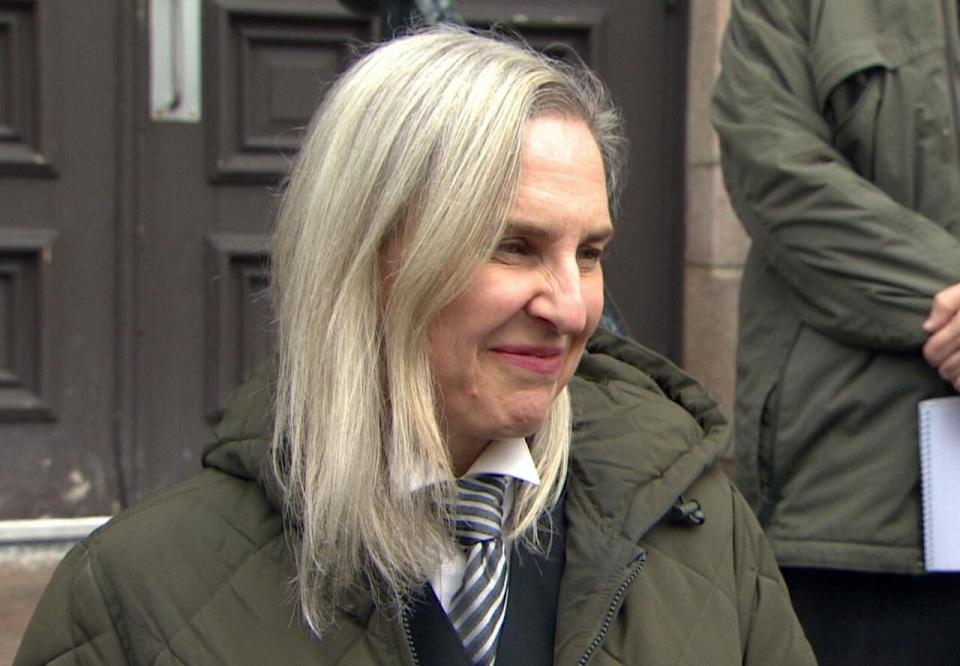Canada's top court rejects Doug Snelgrove's bid to fight sex assault conviction

Doug Snelgrove's fate has finally been sealed, nearly a decade after the disgraced St. John's police officer sexually assaulted a young woman after driving her home from a downtown club while on duty.
The Royal Newfoundland Constabulary officer was at the forefront of three trials and several appeals spanning nine years.
He repeatedly made headlines, especially after his conviction in 2021, when several more women came forward with claims that they were sexually assaulted and harassed by the force's police officers.
Snelgrove lost his case with the Newfoundland and Labrador Court of Appeal last year, and immediately applied to have his appeal heard by the country's top court.
But the Supreme Court of Canada said Thursday it would not hear Snelgrove's case, ending his criminal battle and upholding his four-year prison sentence.
Snelgrove has been out on bail since July.

Protesters showed up repeatedly at Supreme Court in St. John's to voice their displeasure over the result of Snelgrove's second sexual assault trial. (Malone Mullin/CBC)
The RNC said in a statement immediately following the decision that Snelgrove has been suspended from the force without pay since charges were laid in 2015, and — now that appeals have been exhausted — that the internal procedure to address his conviction will begin.
The RNC "confirms that the criminal proceedings are complete and the public complaints process can now proceed," Const. James Cadigan, the force's media relations officer, said in a statement.
"Under the RNC Act, the chief of police must preside over the RNC public complaint proceedings related to the subject matter of the criminal charge. To protect the integrity of the public complaint proceedings the chief cannot comment on this case."
During the appeal to overturn his conviction at the provincial Court of Appeal last year, Snelgrove's Toronto-based lawyer, Janani Shanmuganathan, argued her client's rights as the accused were violated when the judge, Crown and defence attorneys gathered for a meeting in the judge's chambers without Snelgrove during his trial.
He had appealed to the Supreme Court of Canada on that same basis.

Prosecutor Kathleen O'Reilly told reporters Thursday the Supreme Court decision prompted a sense of relief. (Danny Arsenault/CBC)
The Court of Appeal ultimately disagreed with that claim, deciding Snelgrove's presence wasn't required during the meeting because he'd designated his lawyer to represent him, and dismissed his appeal in April.
Kathleen O'Reilly, the Crown prosecutor who fought Snelgrove's local appeal, told reporters Thursday afternoon she felt a sense of solace after the Supreme Court of Canada's decision.
"As everyone knows, it's been a really long road," she said. "It was just a tremendous relief that there's… some finality to the process, some accountability, and that there's justice in the end."
She also nodded to the survivor's "tremendous amount of strength and bravery" for enduring three trials.
"I hope Jane Doe can find some closure and that she can move on with her life," O'Reilly said.
Long-running criminal case
Snelgrove's trials sparked several protests and prompted activists to push for judicial reform for sex assault survivors and an overhaul of the RNC. Advocates and the survivor's supporters repeatedly emphasized the fact that Snelgrove was in a position of trust and authority when he sexually assaulted a civilian.
According to testimony at his third trial, Snelgrove — in uniform and on duty at the time — drove the survivor home from a downtown bar in his patrol car in late 2014.
She told the court she had been drinking and could only remember flashes of that night. At one point, she said she recalled Snelgrove engaging with her sexually on her living room couch. She woke up confused and in pain the next morning, and didn't report the assault until several weeks later.
Her complaint started a criminal probe and led to Snelgrove's arrest in 2015. He maintained the sexual acts between them were consensual.
Snelgrove was initially acquitted of the sex assault charge in 2017. That verdict was overturned after the Supreme Court of Canada found the judge didn't properly inform the jury about consent law.
His second trial in 2020 ended after the jury had been sequestered when the judge in that case realized he had made a technical error by dismissing the alternate jurors.
Snelgrove was convicted during his third trial in 2021 and sentenced to four years in prison.
He is now required to turn himself in in order to serve that sentence.
Download our free CBC News app to sign up for push alerts for CBC Newfoundland and Labrador. Click here to visit our landing page.

